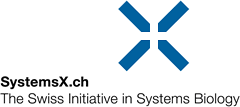A Systems Immunology-Guided Strategy for Immunogen Engineering
Vaccines are one of the most successful medical interventions in global health. Strikingly, a considerable number of pathogens still lack clinically approved vaccines, generally meaning that classical vaccine development strategies have failed.
Recently, a new class of epitope- focused immunogens has emerged from a proposed vaccine development strategy called reverse or structural vaccinology. This strategy relies on the identification of neutralizing antibodies and structural characterization of their epitopes, followed by immunogen engineering for epitope stabilization. In an initial proof-of-principle, it has been shown that an immunogen presenting a single neutralization-sensitive epitope of the Respiratory Syncytial Virus (RSV) fusion protein elicited potent anti-RSV neutralizing antibodies in nonhuman primates (Correia et al., Nature 2014). Beyond the characterization of bulk antibody responses (via serum titers) and a few monoclonal antibodies, the molecular details of immunogen-induced antibody repertoires and maturation pathways remain uncharacterized.
In order to advance designed immunogens towards clinical translation, we now aim to dissect such antibody repertoires, especially in comparison to those elicited by the whole viral protein. Therefore, we will use advanced methods of next-generation sequencing and bioinformatic analysis of antibody repertoires to:
- illuminate the molecular determinants of antibody lineages elicited by epitope-focused immunogens compared to the viral protein.
- isolate epitope specific antibodies for potential therapeutic and diagnostic applications.
- design B cell specific immunogens to drive maturation of specific antibody lineages.
Ultimately, this project aims to leverage high-throughput data to traverse from fundamental systems immunology questions to yielding molecular entities with therapeutic potential such as vaccine components and monoclonal antibodies.
Mot-clé: RSV, epitope-focused vaccine, reverse vaccinology, next-generation-sequencing
retourner
